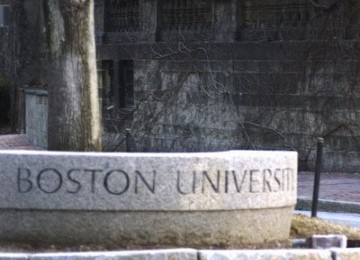Jumlah umat muslim yang semakin meningkat menjadikan fasilitas untuk beribadah menjadi sangat penting. Universitas Boston kini telah memulai sebuah langkah penting dengan membuatkan tempat wudhu bagi mahasiswanya yang hendak melakukan shalat.
Di pusat ‘Bahasa Inggris dan Orientasi’ di kampus itu, banyak mahasiswa yang memeluk agama Islam. "Kita melakukan shalat lima kali sehari dan sebelum shalat harus berwudhu dulu," kata salah satu mahasiswa, Reeema Alashgar, seperti dikutip The Boston Channel.
Di pusat ‘Bahasa Inggris dan Orientasi’ di kampus itu, banyak mahasiswa yang memeluk agama Islam. "Kita melakukan shalat lima kali sehari dan sebelum shalat harus berwudhu dulu," kata salah satu mahasiswa, Reeema Alashgar, seperti dikutip The Boston Channel.
Sebelum dibangun tempat wudhu, mereka biasa wudhu di toilet atau westafel. "Berwudhu di kamar mandi cukup membuat kamar mandi menjadi 'banjir'," kata direktur Margot Veldivia.
Jadi ketika kamar mandi sedang diperbaiki, pihak kampus sekaligus memasang tempat wudhu. Langkah ini ditanggapi positif oleh para mahasiswa. Mereka tidak meminta, namun pihak kampus dengan sendirinya memahami hal itu. Di Universitas Boston juga telah disediakan ruang khusus untuk shalat.







